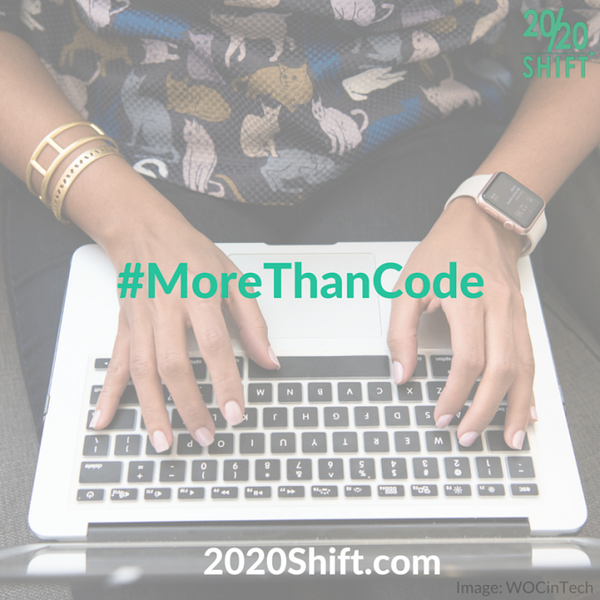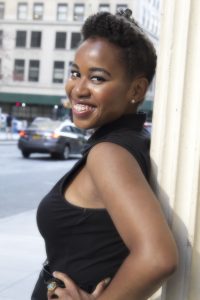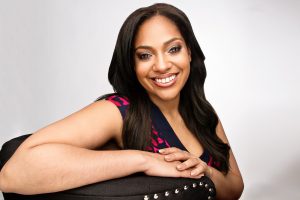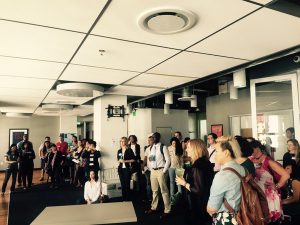How would you describe 2020Shift, for those not familiar with it?
2020Shift is a startup, but, ultimately, we’re a community. We connect minority millennials with opportunities in tech and digital media on the non-engineering side. Think: Digital Marketing, Sales, UX/UI Design, Data Analytics. These are all hybrid jobs and with these being the jobs of the future, our goal is to train our community with the skills needed to not only obtain but thrive within their roles and, ultimately, the industry.
Who would you like to see participate in #MoreThanCode‘s inaugural class?
Anyone who’s been thinking about breaking into tech or transitioning within the space. If you’re a minority millennial or woman, check us out!
How do you foresee spreading this opportunity directly into communities where there’s a digital divide?
The tech and digital media space is divided. When you look at the numbers, women and ‘minorities’ lag far behind white males. It’s not because people are not qualified. There are a couple of things: unconscious bias, “cultural fit,” access, to name a few. Ariel and I know the communities that aren’t being tapped for opportunities — we are from those same communities — so we’re invested in not only bringing training and access to said communities, but working with companies that are really invested in diversifying the landscape.
I see #MoreThanCode not only training women, Blacks and Latinos, among other minority millennials in hybrid skills, but providing opportunities at startups and companies, as well as in the realm of entrepreneurship. We want #MoreThanCode students to be able to lean on our community to take them to that next level professionally and to afford them with opportunities they absolutely deserve.
There are layers to this issue. Access is the foundation. One can say, ‘well the opportunities are out there, but we can’t find ‘qualified talent’ to fill positions.’ However, are you really looking? Are you going to places and organizations where you know you’ll find diverse, qualified talent, or tapping those that can show you where to go? And when you do find the talent, are you ensuring that you’re fostering an inclusive environment? Companies are falling short there.
Also, there’s a lack of education on what it means to actually work in the space. You don’t have to know how to code, or graduate with an engineering or computer science degree. You can be a designer, marketer, content strategist, data analyst, recruiter and work in tech. We have to show a diverse view of what it looks like to work in this industry and that it’s cool and you can earn a nice income.
Tech is the future and if we don’t get in now, the gap will just continue widening.
Outside of the curriculum, we’re working closely with students to maneuver the space. It goes beyond just getting the job and knowing the skills, but how do you construct your resume and LinkedIn to effectively showcase your skills and reach out for informational interviews. We’re also working closely with our partnering companies to not only pinpoint the talent, but also train them on the skills needed to work at those companies and the larger industry.
Other hybrid roles we’re looking to offer training in are product and analytics.
Ariel and I have known each other through the space for years. We both have seen through our own experiences — and the experiences of friends and colleagues — that diversity is an issue. After the diversity stats began rolling out, Ariel created something that would address the issue: 2020Shift. She approached me with the idea and I was all in! After a year of hosting events and panels, as well as bringing millennials into the offices of Pandora, Facebook, Spotify, Huffington Post, Mashable and AppNexus, to name a few, it was time to ensure that our community was also trained on the skills needed to further their careers and opportunities.
I definitely think we’ve got our eye on certain companies. We [Black consumers] over-index on Twitter, would be great to work with a huge tech company like that that so many of us use.








